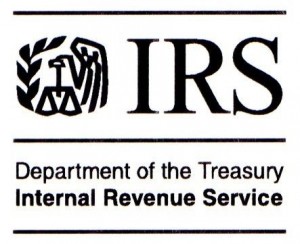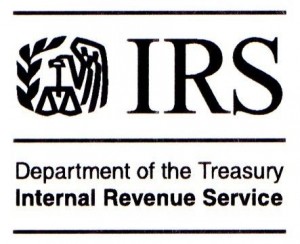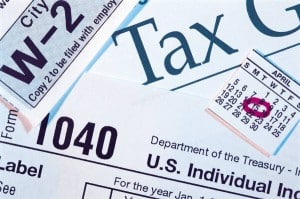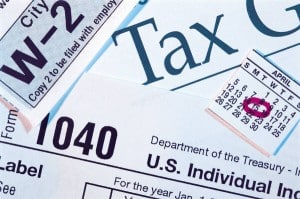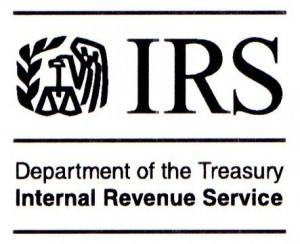Judges Set Clock Ticking for IRS to Explain, Recover Missing Emails
Philip Wegmann / July 12, 2014
The IRS has less than 30 days to detail under oath and in writing the circumstances surrounding the disappearance of former official Lois Lerner’s emails and to summarize options to recover the messages, a federal judge ruled.
Judicial Watch, a non-partisan watchdog group, has sought the documents from the Internal Revenue Service since last year as part of its ongoing lawsuit under the Freedom of Information Act. The judge gave the IRS no more than 30 days, or until Sept. 10, to comply with the order.
Part of a greater compromise, the ruling handed down Thursday by Judge Emmet Sullivan of the U.S. District Court in Washington allows Judicial Watch to access the documents and limits the exposure to the scandal involving IRS targeting of conservative groups. Originally, Judicial Watch requested that IRS officials testify under oath, The Hill newspaper reported.
In a separate decision Friday afternoon, another federal judge demanded that the IRS provide additional information on Lerner’s missing emails. Ruling in a lawsuit brought by True the Vote, one of the targeted groups, District Court Judge Reggie Walton ordered the tax agency to explain the disappearance, Fox News reported.
In the Judicial Watch case, Judge Sullivan ordered the IRS and the watchdog group to work cooperatively with another federal judge to recover Lerner’s emails, which IRS officials have said were destroyed when a computer hard drive crashed.
Judicial Watch President Tom Fitton called the decision “a victory for public accountability.” Fitton expressed optimism about eventual recovery of emails, calling Judge John Facciola “an expert in e-discovery.”
The watchdog group previously had said the Lerner emails “could be critical to getting to the bottom of the IRS scandal where tea party and other conservative group applications were illegally delayed by the IRS.”
Tag: IRS
“The dog ate Lois Lerner’s emails” geez ..
“The dog ate Lois Lerner’s emails” geez ...
Laughable.
Local Desktop computer crashes and “all email is gone”
Really? This is the excuse provided by the “tech savvy” Obama
Are these people so technically ignorant that they think email is stored locally?
Are they saying that the email servers also crashed and the daily (if not more frequent) server backups are lost?
And the offsite storage facility where long term backups are stored has been destroyed?
And the recipients of the emails (and the people that they forwarded the emails to have also had their computers crash and their emails were lost?
And nobody printed off ANY email ever? There would be paper copies as well as email logs and (possibly) email images stored by the networked printers.
AND… IF ALL OF THE ABOVE WAS TRUE (100% unlikely) – then the entire government IT organization should be fired immediately and we have a much bigger problem – that the government’s IT is incompetent and critical data is not being secured and protected – a major, major national security issue as well as a major, major scandal.
Really – this is beyond insulting and laughable.
They might as well have said that “The dog ate Lois Lerner’s emails” – that would be more believable.
IRS Claims to Have Lost Over 2 Years of Lerner Emails…ah yea that’s believable
IRS Claims to Have Lost Over 2 Years of Lerner Emails…ah yea that’s believable
Jun 13 2014
“The fact that I am just learning about this, over a year into the investigation, is completely unacceptable and now calls into question the credibility of the IRS’s response to Congressional inquiries. There needs to be an immediate investigation and forensic audit by Department of Justice as well as the Inspector General.
“Just a short time ago, Commissioner Koskinen promised to produce all Lerner documents. It appears now that was an empty promise. Frankly, these are the critical years of the targeting of conservative groups that could explain who knew what when, and what, if any, coordination there was between agencies. Instead, because of this loss of documents, we are conveniently left to believe that Lois Lerner acted alone. This failure of the IRS requires the White House, which promised to get to the bottom of this, to do an Administration-wide search and production of any emails to or from Lois Lerner. The Administration has repeatedly referred us back to the IRS for production of materials. It is clear that is wholly insufficient when it comes to determining the full scope of the violation of taxpayer rights.”
Oversight Subcommittee Chairman Charles Boustany Jr., M.D. (R-LA) added, “In the course of the Committee’s investigation, the Administration repeatedly claimed we were getting access to all relevant IRS documents. Only now – thirteen months into the investigation – the IRS reveals that key emails from the time of the targeting have been lost. And they bury that fact deep in an unrelated letter on a Friday afternoon. In that same letter, they urge Congress to end the investigations into IRS wrongdoing. This is not the transparency promised to the American people. If there is no smidgeon of corruption what is the Administration hiding?”
https://waysandmeans.house.gov/news/documentsingle.aspx?DocumentID=384506
Judicial Watch Obtains New Documents Showing IRS Targeting Came Directly From Washington D.C.
Judicial Watch Obtains New Documents Showing IRS Targeting Came Directly From Washington D.C.
Katie Pavlich | May 14, 2014
New documents obtained and released through a Judicial Watch lawsuit show the targeting of tea party and conservative groups came directly out of Washington D.C., not a rogue IRS office in Cincinnati.
On July 6, 2012, former Director of the IRS Rulings and Agreements Division and current Manager of Exempt Organizations Guidance Holly Paz sent an email to IRS Attorney Steven Grodnitzky asking for an explanation of how tea party group applications were being handled. Grodnitzky responded by confirming the cases were being handled in Washington.
“EOT is working the Tea party applications in coordination with Cincy. We are developing a few applications here in DC and providing copies of our development letters with the agent to use as examples in the development of their cases. Chip Hull [another lawyer in IRS headquarters] is working these cases in EOT and working with the agent in Cincy, so any communication should include him as well. Because the Tea party applications are the subject of an SCR [Sensitive Case Report], we cannot resolve any of the cases without coordinating with Rob,” Grodnitzky wrote.
When the IRS targeting scandal broke last year, officials in Washington immediately pinned the blame on the Cincinnati office. This documentation proves not only that direction was coming out of Washington, but that Washington instructed Cincinnati about how to handle tea party applications.
A new email from Lois Lerner also details how BOLO lists (be on the look out) were specifically created for tea party groups or groups with issues related to government spending, debt, taxes and “how the country is being run.”
“Because the BOLO only contained a brief reference to “Organizations involved with the Tea Party movement applying for exemption under 501(c)(3) and 501(c)(4)” in June 2011, the EO Determinations manager asked the manager of the screening group, John Shafer [IRS Cincinnati field office manager], what criteria were being used to label cases as “tea party ” cases. (“Do the applications specify/state ‘ tea party’? If not, how do we know applicant is involved with the tea party movement?”) The screening group manager asked his employees how they were applying the BOLO’s short –hand reference to “tea party.” His employees responded that they were including organizations meeting any of the following criteria as falling within the BOLO’s reference to “tea party” organizations: “1. ‘Tea Party’, ‘Patriots’ or ‘9/12 Project’ is referenced in the case file. 2. Issues include government spending, government debt and taxes. 3. Educate the public through advocacy/legislative activities to make America a better place to live. 4. Statements in the case file that are critical of the how the country is being run. . . ” Lerner wrote on April 2, 2013. “So, we believe we have provided information that shows that no one in EO “developed” the criteria. Rather, staff used their own interpretations of the brief reference to “organizations involved with the Tea Party movement,” which was what was on the BOLO list.”
Judicial Watch also found the IRS put red and orange alert symbols on tea party issues for heightened awareness. Here are two slides from a “Heightened Awareness Presentation” used at the IRS.
https://townhall.com/tipsheet/katiepavlich/2014/05/14/new-documents-show-irs-targeting-came-directly-from-washington-dc-n1838128
Reader says what I really want to hear from the RBSA is how are they going to fix the IRS Issues
Reader says what I really want to hear from the RBSA is how are they going to fix the IRS Issues
Reader says The IRS sent the RBSA a loss of tax exempt status in 2011
Reader says The IRS sent the RBSA a loss of tax exempt status in 2011
According to the IRS website, a letter went to every organization that had lost its tax-exempt status due to failure to file forms. This letter was sent in 2011. Somebody at the RBSA received it…and filed it.
When the treasurer took off some years ago, wouldn’t the president have been expected to find somebody to review the books and make sure everything was in good shape?
This didn’t happen yesterday, either.
RBSA addressing tax status
RBSA addressing tax status
MAY 9, 2014 LAST UPDATED: FRIDAY, MAY 9, 2014, 12:31 AM
BY DARIUS AMOS
STAFF WRITER
Officers within Ridgewood’s largest youth sports organization said corrective measures are already underway for the reinstatement of their federal tax-exempt status from the Internal Revenue Service.
The tax-exempt standing of the Ridgewood Baseball and Softball Association (RBSA) recently came into the spotlight following the revelation that the group did not file federal taxes for at least three consecutive years. As a result of that oversight, the RBSA was stripped of its tax-exempt status with the IRS more than three years ago.
Public records available on the IRS website, which is regularly updated, confirm that the federal government revoked RBSA’s tax-exempt classification on March 15, 2011. The IRS imposes an automatic revocation on organizations that fail to submit tax returns for three straight years.
Under federal law, a tax-exempt organization in the United States is required to file 990 series returns with the IRS each year. Some groups are excused from the 990 federal tax filings under the Internal Revenue Code, though most falling under that category are religious institutions, select political groups and those with low annual gross receipts, according to the IRS website.
– See more at: https://www.northjersey.com/community-news/clubs-and-service-organizations/group-correcting-tax-status-1.1012773#sthash.HJHg6O5G.dpuf
RBSA: How to Lose Your 501(c)(3) Tax Exempt Status (Without Really Trying)
RBSA: How to Lose Your 501(c)(3) Tax Exempt Status (Without Really Trying)
It’s easy for a nonprofit organization to maintain its tax exempt status—and can be just as easy to lose it.
Each year, the IRS revokes the tax-exempt status of more than 100 501(c)(3) organizations. Organizations recognized as exempt from federal income tax under this section of the Internal Revenue Code include private foundations as well as churches, educational institutions, hospitals, and many other types of public charities.
But these organizations can maintain their tax-exempt status if they heed the rules in six areas:
Private benefit/inurement
Lobbying
Political campaign activity
Unrelated business income (UBI)
Annual reporting obligation
Operation in accord with stated exempt purpose(s)
(Note: The following subjects are described briefly. If you want more information about each area, visit the Tax-Exempt Status Virtual Workshop on the IRS educational micro-site, www.stayexempt.irs.gov.
1. PRIVATE BENEFIT/INUREMENT
Private benefit: “A 501(c)(3) organization’s activities should be directed exclusively toward some exempt purpose,” said Richard Crom, Staff Assistant for IRS Exempt Organizations Customer Education and Outreach office. “Its activities should not serve the private interests, or private benefit, of any individual or organization (other than the 501(c)(3) organization) more than insubstantially. The intent of a 501(c) (3) organization is to ensure it serves a public interest, not a private one.”
Inurement: The concept of inurement states that no part of an organization’s net earnings may inure to the benefit of a private shareholder or individual who, because of the person’s relationship to the organization, has an opportunity to control or influence its activities.
“A 501(c)(3) organization is prohibited from allowing its income or assets to benefit insiders (people with a personal or private interest in the activities of the organization),” said Crom. “Insiders are typically board members, officers, directors, and important employees.” He added that prohibited inurement includes the payment of dividends, the payment of unreasonable compensation to insiders, and the transfer of property to insiders for less than fair market value.
If a 501(c)(3) organization engages in inurement or substantial private benefit, the organization risks losing its exemption. Additionally, insiders guilty of inurement may be subject to excise tax.
2. LOBBYING
When an organization contacts, or urges the public to contact, members or employees of a legislative body for the purpose of proposing, supporting, or opposing legislation, or when the organization advocates the adoption or rejection of legislation, it is lobbying. “501(c)(3) organizations are allowed to do some lobbying,” said Melaney Partner, acting director for the IRS Exempt Organizations Customer Education and Outreach office. “However, if lobbying activities are substantial an organization risks losing its tax exempt status.” She added that an organization can elect to have its lobbying activities measured by an “expenditure test” to determine whether or not the activities are substantial. This is known as a 501(h) election, so-named for the section of the Internal Revenue Code where the rules for the expenditure test are spelled out.
“By making this election, an organization agrees to not spend more than a certain percentage of its total expenses on lobbying activities,” Partner said. “The other way to measure lobbying activity is to determine whether, based on all of the pertinent facts and circumstances, an organization’s lobbying comprises a substantial part of its overall activities. This substantial part test is a more subjective method compared to the more mathematical, objective expenditure test.”
Organizations must file Form 5768, Election/Revocation of Election by an Eligible Sec. 501(c)(3) Organization to Make Expenditures to Influence Legislation, in advance to be subject to the expenditure test.
3. POLITICAL ACTIVITY
All section 501(c)(3) organizations are prohibited from directly or indirectly participating in, or intervening in, any political campaign on behalf of (or in opposition to) any candidate running for public office. The prohibition applies to all campaigns (federal, state and local level). “Political campaign intervention includes any and all activities that favor or oppose one or more candidates for public office,” said Crom, who speaks to non-profit organizations on a regular basis about tax-compliance issues. “The prohibition extends beyond candidate endorsements.”
Contributions to political campaign funds or public statements of position (verbal or written) made by or on behalf of an organization in favor of, or in opposition to, any candidate for public office clearly violate the prohibition on political campaign intervention.
Section 501(c)(3) organizations may engage in some activities to promote voter registration, encourage voter participation, and provide voter education, but they can’t engage in activities that favor or oppose any candidate for public office. Whether an activity is political campaign intervention depends on all the facts and circumstances.
“The political campaign intervention prohibition is not intended to restrict free expression on political matters by leaders of organizations speaking for themselves as individuals,” said Crom. “Nor are leaders prohibited from speaking about important issues of public policy. However, for their organizations to remain tax exempt under section 501(c)(3), leaders cannot make partisan comments in official organization publications or at official functions of the organization.”
4. UNRELATED BUSINESS INCOME (UBI)
Another activity that can potentially jeopardize an organization’s 501(c)(3) tax-exempt status is having too much income generated from activities that are unrelated to the exempt function of the organization. This income comes from a regularly-carried-on trade or business that is not substantially related to the organization’s exempt purpose. “An organization that produces unrelated business income as a result of its unrelated trade or business may have to pay taxes on that income,” said Partner. “Income-producing activity must meet three conditions before the income is potentially taxable.”
First, the activity must be a trade or business. Second, the trade or business must be regularly carried on. Third, the business activity is not substantially related to an organization’s exempt purpose. In other words, the activity itself does not contribute importantly to accomplishing the exempt purpose, other than through the production of funds.
Some of the most common UBI generating activities include: the sale of advertising space in weekly bulletins, magazines, journals or on the organization’s website; the sale of merchandise and publications when those items being sold do not have a substantial relationship to the exempt purpose of the organization; provision of management or other similar services to other organizations; and, even some types of fundraising activities. Generally, organizations that generate unrelated business income should file Form 990-T, Exempt Organization Business Income Tax Return, and pay tax on the income.
“An organization must be careful generating money in activities that do not further its specific exempt purposes,” said Partner. “In addition to the taxability of income from unrelated activities, if those activities are substantial in relation to your exempt purpose activities, you may be putting your exempt status in jeopardy.”
5. ANNUAL REPORTING OBLIGATION
While 501(c)(3) public charities are exempt from Federal income tax, most of these organizations have information reporting obligations under the Internal Revenue Code to ensure they continue to be recognized as tax-exempt. In addition, they may also be liable for unrelated business income tax as described above, employment tax, excise taxes, and certain state and local taxes.
Public charities generally file either Form 990, Return of Organization Exempt from Income Tax, Form 990- EZ, Short Form Return of Organization Exempt from Income Tax, or submit online Form 990-N, Electronic Notice (e-Postcard) for Tax-Exempt Organizations not Required To File Form 990 or 990-EZ.
“The type of form or notice required is generally determined by the public charity’s gross receipts and the value of its assets,” said Crom. For tax years ending on or after December 31, 2010, an organization may file Form 990-EZ if its gross receipts are normally less than $200,000, and if its total assets are less than $500,000 at the end of the year. If the organization’s gross receipts are $200,000 or greater, or if its assets at the end of the tax year are $500,000 or more, the organization generally must file Form 990. If the organization’s annual gross receipts are generally $50,000 or less, the organization may in lieu of Form 990 or 990-EZ submit online new Form 990-N, Electronic Notice (e-Postcard) for Tax-Exempt Organizations not Required to File Form 990 or 990-EZ.
There are some public charities that are not required to file Forms 990 or 990-EZ, including churches and certain church-affiliated organizations. Organizations can learn about filing and new requirements applicable to supporting organizations at the IRS Nonprofits and Charities website.
“The IRS will remove many organizations previously recognized as tax-exempt from its Master File due to provisions of the Pension Protection Act of 2006,” said Crom. “The act requires that all tax-exempt organizations—except churches and church-related organizations—must file an annual return with the IRS. And if they don’t do so for three consecutive years, they automatically lose their exempt status.”
The IRS conducted an extensive outreach effort over the past several years to remind tax-exempt organizations about this new legal requirement — and to file on time. “There were many organizations that we still did not hear from and we will post a list of those revoked organizations on the IRS website in February 2011,” said Crom.
If an organization finds that its exempt status has been automatically revoked due to non-filing and it wants its tax-exempt status reinstated, it will need to reapply and pay the appropriate user fee. For more information on that process, visit the Charities and Non- Profits pages on the IRS website.
6. OPERATION IN ACCORD WITH STATED EXEMPT PURPOSE(S)
“If you stop doing all or a significant amount of the exempt activities you told the IRS you were going to do in your original application for exemption—you could lose your exemption,” said Crom. “If your organization’s direction has changed, let us know. It could prevent future problems.” He added that organizations must adhere to the guidelines inherent in these six areas. “If they do this, they will maintain their tax-exempt status and continue enjoying the benefits associated with it,” said Crom.
To receive periodic updates on current Exempt Organization issues of interest, visit www.irs.gov and sign up to receive the EO Update by e-mail.
https://www.nonprofitrisk.org/library/articles/How_to_Lose_Your_Tax_Exempt_Status.shtml
Who Gets Rewarded for Stiffing the IRS? IRS Agents!
Who Gets Rewarded for Stiffing the IRS? IRS Agents!
J.D. Tuccille|Apr. 23, 2014 12:17 pm
If you and I pay the Internal Revenue Service less than it claims it owes us, we can get slammed pretty hard with fines, penalties, and even jail time. The IRS even stages armed raids in its search for a few more sheckels to feed the government’s appetite. We even can getdinged $5,000 for filing “frivolous” returns that just annoy the tax collectors.
But there is one class of people that can misbehave and even stiff the IRS, and receive rewards in return. Who has that sweet deal? IRS employees.
According to a press release from the Treasury Inspector General for Tax Administration:
between October 1, 2010 and December 31, 2012, more than 2,800 employees with recent substantiated conduct issues resulting in disciplinary action received more than $2.8 million in monetary awards and more than 27,000 hours in time-off awards. Among these, more than 1,100 IRS employees with substantiated Federal tax compliance problems received more than $1 million in cash awards and more than 10,000 hours in time-off awards.
Whoops!
https://reason.com/blog/2014/04/23/who-gets-rewarded-for-stiffing-the-irs-i
New Emails Show Lois Lerner Was in Contact With DOJ About Prosecuting Tax Exempt Groups
New Emails Show Lois Lerner Was in Contact With DOJ About Prosecuting Tax Exempt Groups
Katie Pavlich | Apr 16, 2014
According to new IRS emails obtained through a Freedom of Information Act request from Judicial Watch, former head of tax exempt groups at the IRS Lois Lerner was in contact with the Department of Justice in May 2013 about whether tax exempt groups could be criminally prosecuted for “lying” about political activity.
“I got a call today from Richard Pilger Director Elections Crimes Branch at DOJ … He wanted to know who at IRS the DOJ folk s [sic] could talk to about Sen. Whitehouse idea at the hearing that DOJ could piece together false statement cases about applicants who “lied” on their 1024s –saying they weren’t planning on doing political activity, and then turning around and making large visible political expenditures. DOJ is feeling like it needs to respond, but want to talk to the right folks at IRS to see whether there are impediments from our side and what, if any damage this might do to IRS programs. I told him that sounded like we might need several folks from IRS,” Lerner wrote in a May 8, 2013 email to former Nikole C. Flax, who was former-Acting IRS Commissioner Steven T. Miller’s chief of staff.
Pondering the complexity of the tax code on Tax Day
Pondering the complexity of the tax code on Tax Day
By SCOTT GARRETT
As you finalize this year’s tax returns, I hope you realize you are not the only one feeling frustrated. In fact, Albert Einstein once quipped that “The hardest thing in the world to understand is the income tax.” Interestingly, this wasn’t always the case.
In 1913, the tax code was a far more manageable 400 pages. When Einstein passed away in 1955, the U.S. tax code had grown to about 14,000 pages — 10 times as long as the novel “War and Peace.”
Today, now eclipsing 74,000 pages, the code is more than five times as large as it was in Einstein’s time. For those of you doing the math that means since its adoption in 1913, policymakers have added an average of two new pages to the code every day for the last 100 years.
Besides causing a headache for you, your loved ones and your neighbors, the complicated tax code is a colossal drag on our nation’s economy. According to a 2013 report published by Mercatus Center scholar Jason Fichtner, “Americans spent more than 6 billion hours complying with the tax code in 2011.” He writes, “The compliance burden results in estimates of foregone economic growth from $148 billion to $609 billion annually.”
A simpler, fairer and flatter tax structure is the solution to this problem. It is time for us to simplify every Americans’ tax filing, saving time and hard-earned money, and creating much-needed certainty for job creators and small business owners.
Before the House Ways and Means Committee last April, Sam Griffith, president and chief executive officer of National Jet Co., said “the current tax code is a maze of mismatched provisions which provide disincentives to grow our businesses and hire new employees.” The 2013 Small Business Survey compiled by the U.S. Chamber of Commerce has found that eight out of 10 small businesses support reforming the tax code.
State tax policy is a good, small-scale example of what can happen on the federal level. The governors of Texas, Wisconsin and Indiana, for example, have openly and actively recruited out-of-state businesses to relocate and enjoy their states’ lower taxes and less burdensome regulations. It’s time for the federal government to follow suit.
Just like the states near Wisconsin, Texas, and Indiana, the United States loses business to other countries because of our high, overly complex tax code. But, rather than working to enact across-the-board reform, our policymakers just insert exemptions or “carve-outs” for politically favored businesses.
These tax carve-outs are unfair to Main Street coffee shops, florists, local factories and any business that doesn’t get the same kind of treatment. As we know, when the government picks winners and losers, we end up with stories like that of Flabeg Solar U.S. Corp. — the failed solar energy company that cost the American taxpayers more than $10 million.
Americans want to be treated fairly and they want to earn a living to support their families. The tax code is crying out for significant, substantive reform. Meaningful, structural reform will free up Americans’ time and money so they can put it into greater creativity and productivity.
With comprehensive tax reform, we have a chance to reignite the entrepreneurial, hardworking American spirit that is being stifled by mountains of antiquated tax policies that no one — even a world-renowned physicist — can understand.
U.S. Rep. Scott Garrett represents the 5th Congressional District of New Jersey, which includes most of Warren County.
62 Percent of Americans Say They Favor a Flat Tax
62 Percent of Americans Say They Favor a Flat Tax
Emily Ekins|Apr. 15, 2014 9:05 am
The latest Reason-Rupe poll asked Americans if they would support or oppose changing the federal tax system to a flat tax, where everyone pays the same percentage of his or her income, finding that 62 percent favor the flat tax and 33 percent are opposed. When asked where they would set the flat tax, the aveage response was 15 percent.
This reflects another recent Reason-Rupe poll finding that 67 percent of Americans say it is “not the responsibility of the government to reduce the differences in income between people with high incomes and those with low incomes,” while 29 percent say it is.
Strong support for a flat tax extends across income groups (62 percent) among those making less than $30,000 a year and 73 percent among those making more than $110,000 a year. Similarly across education groups and age groups, 6 in 10 say they support the flat tax.
Support for a flat tax extends beyond partisanship, with 66 percent of Republicans, 68 percent of independents, and 52 percent of Democrats in support. Nevertheless, Democrats are more likely to oppose the flat tax (43 percent) compared to Republicans (29 percent) and independents (29 percent).
Americans who say the less government the better and that the free market can better solve problems than a strong government, favor a flat tax by a margin of nearly 50 points (roughly 72 to 25 percent). However, those who think government should be doing more and that we need a strong government to solve problems favor a flat tax by only 8 points (roughly 51 to 45 percent).
https://reason.com/poll/2014/04/15/62-percent-of-americans-say-they-favor-a
IRS Employees Brazenly Campaigned For Obama And Your Tax Money Paid For It!
IRS Employees Brazenly Campaigned For Obama And Your Tax Money Paid For It!
IRS employees are being investigated for actually actively campaigning for Obama and other Democrats while on government time to taxpayers seeking information on how to pay their taxes. Amazingly, we’re supposed to still believe that there is no basis for the accusations of IRS targeting the Tea Party and other conservative groups.
From the Washington Times:
In one case the Office of Special Counsel, which investigates federal employees who conduct politics on government time, said it was “commonplace” in a Dallas IRS office for employees to have pro-Obama screensavers on their computers, and to have campaign-style buttons and stickers at their office.
In another case, a worker at the tax agency’s customer help line urged taxpayers “to re-elect President Obama in 2012 by repeatedly reciting a chant based on the spelling of his last name,” the Office of Special Counsel said in a statement.
…Another IRS employee in Kentucky has agreed to serve a 14-day suspension for blasting Republicans in a conversation with a taxpayer.
“They’re going to take women back 40 years,” the IRS employee said in a conversation that was recorded. The employee also said that “if you vote for a Republican, the rich are going to get richer and the poor are going to get poorer.”
That employee went on to tell the taxpayer she knew she wasn’t supposed to be voicing her political opinions, and asked the taxpayer not to say anything.
What kind of government office is run so poorly that the employees felt they had absolute carte blanche to rant to taxpayers about voting for Obama? This is an absolute disgrace and all Americans should be offended by this, but how many on the left will even hear about this or care to comment?
https://www.ijreview.com/2014/04/128186-irs-employees-campaigned-for-obama-and-your-tax-money-paid-for-it/
8 Election Experts Slam IRS for Interfering with Campaign Finance
8 Election Experts Slam IRS for Interfering with Campaign Finance
Ken McIntyre
February 27, 2014 at 4:54 pm
Eight former members of the Federal Election Commission today accused the Internal Revenue Service of attempting to “interfere” with campaign finance regulations enacted by Congress, The Foundry has learned.
The former FEC commissioners signed a letter filed this afternoon as a public comment on the IRS’s proposed new rules on so-called “candidate-related political activity” by nonprofit advocacy organizations qualified as tax-exempt under federal law. Midnight is the deadline for public comment on the proposed rules, which critics say the IRS developed secretly and announced at Thanksgiving to silence some free speech – seven months after the IRS targeting scandal broke.
Signing the letter to the IRS were Lee Ann Elliott, Thomas J. Josefiak, David M. Mason, Don McGahn, Bradley A. Smith, Michael E. Toner, Hans A. von Spakovsky and Darryl Wold. McGahn, the most recent member of the FEC, stepped down last year.
Among them, the former commissioners have 55 years of experience in campaign finance regulation, said von Spakovsky, a senior legal fellow at The Heritage Foundation who also manages the think tank’s Election Law Reform Initiative. He said:
“The proposed rules would severely restrict the First Amendment-protected political activity of nonprofit advocacy organizations. It seems obvious that this is the second stage in the Obama Administration’s attempt to silence its critics – first they targeted Tea Party and other conservative organizations to delay their IRS applications for tax-exempt status, and now they are changing the rules to make it almost impossible for them to operate.”
Americans may register their comments with the IRS through the website NonProfitFreedom.org – a project of the Center for Competitive Politics in Alexandria, Va., which Smith heads.
Smith, FEC chairman from 2000 to 2005, told The Foundry:
”The IRS needs to recognize the dangers of embroiling itself in the political process. It just is not equipped to regulate in an area far removed from revenue collection, and that Congress specifically entrusted to the bipartisan Federal Election Commission. If the proposed rules are any indication, the agency is already far out of its depth.”
The proposed changes would affect Section 501(c)(4) of the Internal Revenue Code, which covers nonprofit groups ranging from the Sierra Club on the left to the National Rifle Association on the right. In their letter, Smith, von Spakovsky and the six other former FEC members argue that the IRS lacks the statutory authority to restrict the political activity of such organizations and that the proposed rules do not “respect Supreme Court precedent.”
The commissioners also say the proposed rules would “confuse regulated entities” and “seriously undermine the First Amendment rights and protections of the Constitution.” They point out the “inappropriateness” of the IRS’s proposing “a regulatory scheme almost identical to a provision of federal campaign finance law that the Supreme Court declared unconstitutional” in the Citizens United decision.
The IRS’s actions are “arbitrary and capricious,” they conclude, and the proposed rules “should be withdrawn.”
Midnight is the deadline for public comments on the “Notice of Proposed Rulemaking.” As of earlier today, almost 100,000 comments had been filed, indicating that the response may break a record for the IRS.
Von Spakovsky said a quick review of the comments indicates that the public tide is running strongly against the IRS on the rules.
Some in Congress also have criticized the rules change –Senate Minority Leader Mitch McConnell (R-KY), House Speaker John Boehner (R-OH), and other congressional leaders sent a letter of protest Feb. 5 to the IRS. They wrote that the rules “target the First Amendment rights” of grassroots groups and appear “calculated to take effect just in time for the mid-term elections.”
By a 243-176 vote, the House on Wednesday approved a bill that would delay the rules for a year. , Senate Democrats are expected to prevent the bill, sponsored by House Ways and Means Committee Chairman Dave Camp (R-MI), from coming to a vote. The White House has threatened a veto.
This story was produced by The Foundry’s news team. Nothing here should be construed as necessarily reflecting the views of The Heritage Foundation.
Tax Reform at Last?
Tax Reform at Last?
Stephen Moore
February 26, 2014 at 6:48 am
Today, House Ways and Means Committee Chairman Dave Camp (R) of Michigan jumpstarts the tax reform debate. It’s about time. The tax code stables in Washington haven’t been cleaned out since 1986—more than a quarter century ago, when Ronald Reagan was President.
Since then, year after year, the tax code gets engrafted with more special interest loopholes, credits, and carve-outs. Not only is this unfair to those without lobbyists, it makes the tax code mindlessly complex—a job security program for tax lawyers and accountants.
Worse yet, back in the 1980s, the U.S. had among the lowest income tax rates on businesses in the world. Today, our small and large businesses pay among the highest rates.
Our corporate tax rate is now the highest in the industrialized world at 35 percent—because almost all other nations have slashed their business taxes to attract jobs and businesses. This high corporate rate in practice acts as a tariff on the goods and services we produce in the United States. Our analysts at Heritage find that this lowers wages of American workers. Want to give U.S. workers a raise? Cut the tax rates on businesses so they invest more here.
Camp aims to fix all of this by rewriting the tax code, and that starts with lowering tax rates across the board and eliminating loopholes.
He would shrink the current seven income tax brackets down to three: 10 percent, 25 percent, and 35 percent for those families with incomes above $450,000. That highest rate of 35 percent is still too high and an unnecessary nod to the class warriors on the left, but it would be an improvement on the current Obama rate of more than 40 percent.
The corporate tax rate would fall from 35 percent to 25 percent, which is at least closer to the world average. Camp would also allow companies to bring capital stored abroad back into America at a low tax rate of less than 10 percent, which will mean more investment and insourcing of jobs on these shores—as well as more revenue for the Treasury.
Camp’s plan also simplifies the tax code by allowing millions of tax filers a larger standard deduction, which means they can forgo the hassle of itemizing deductions and go straight to the EZ form. For those who do itemize deductions, many of the carve-outs will be gone—but not the mortgage or charity write-offs.
Expect the White House to lambast this plan as a “tax cut for the rich,” but the evidence from history shows that lower tax rates are usually associated with higher overall tax receipts and more taxes paid by the rich. In the 1980s after two rounds of Reagan tax rate reductions, income tax receipts doubled, and the share of taxes paid by the top 1 percent, 5 percent, and 10 percent rose as the economy expanded.
This is an important history lesson. Now, congressional revenue estimators are using “dynamic scoring” to estimate what happens to the economy and revenues if the new plan is implemented. This yields a “growth dividend” for the economy of at least $700 billion, our sources tell us. A word of advice to Chairman Camp: Use that extra money for better treatment of capital investment or to lower tax rates still further to get even more growth.
The U.S economy has slogged along at just a little over 2 percent growth during this recovery—and last year, less than that. Imagine 4 percent growth for the next decade, and you’ve added nearly $2 trillion more in tax revenues to pay the government’s bills.
I’d prefer to see something closer to a pure flat tax with one tax rate, a postcard-sized return, and no double tax on saving and investment—much like what Steve Forbes proposed back in 1996. And there are some bad ideas buried in the Camp plan, such as a tax on the assets of big banks that received bailout funds in 2008-09. That seems more at home in the Obama redistribution budget than in a pro-growth tax reform vision.
But on balance, this is a gutsy and courageous first attempt to take on the beehive of special interests in Washington and grow the economy while making the tax system fairer and more comprehensible.
The tax system we have is absurd in the 21st century. It’s as if we were trying to operate our businesses and compete in global markets with clunky computers and an operating system built in 1985. If Republicans want to be the party of solutions, the party of growth, and the party of reform, they ought to rally behind the spirit of Mr. Camp’s initiative—and even make it bolder.




